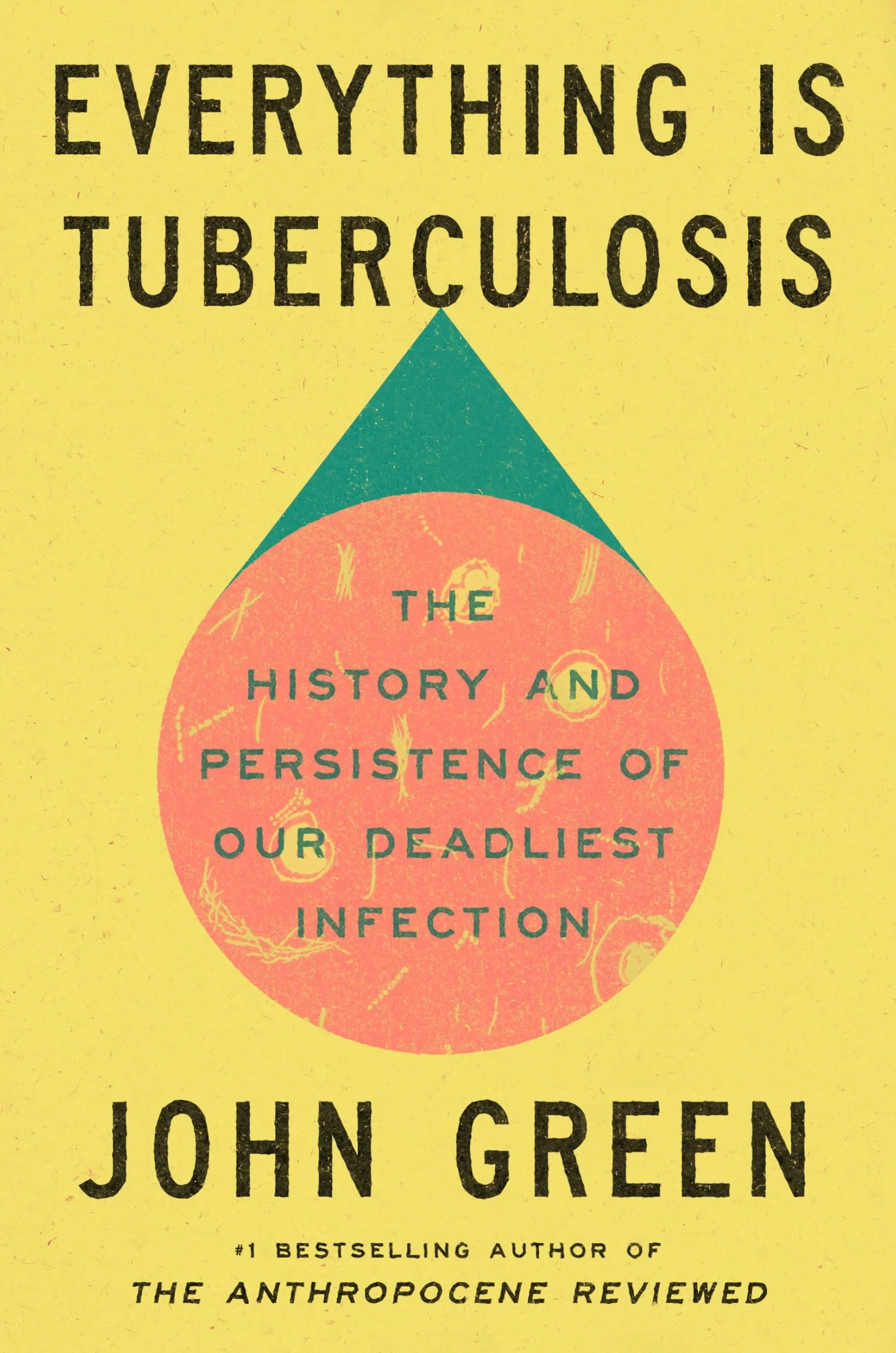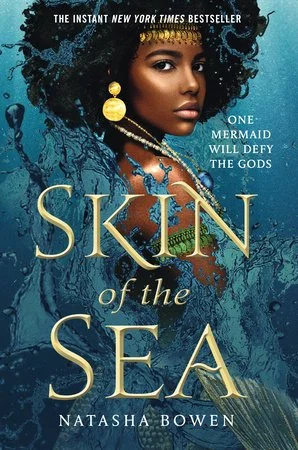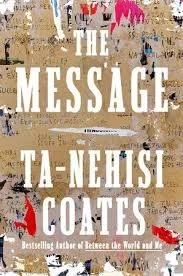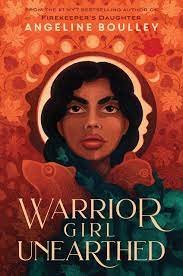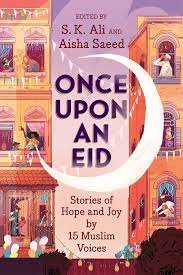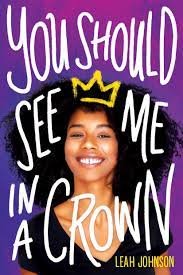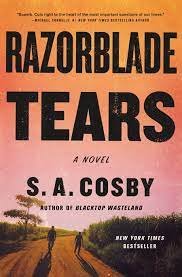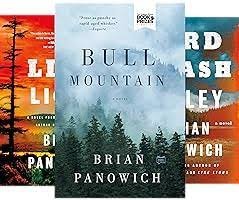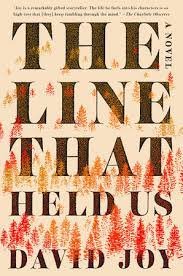Summers Are For Reading
Is it summer already? The last day of school usually signals the start of summer, but it takes my mind and body a few more weeks to make that shift. Nate sent out his summer reading list in the Takes and Typos newsletter back in May like the overachiever he is and I am now just sitting down to organize and sort through my TBR list. Surprise, surprise, we have some overlapping titles.
I like to oscillate between serious and non serious books, alternating between fiction and non fiction or even mixing up genres. For me, summer time reading means navigating between frivolity like a dramedy or romedy and trying to learn something about the world. I also make an effort to read books by women of color, queer authors, and a few titles at least a couple of young adult books to recommend to students. With all that in mind, my summer list is all over the place. I’m an avid audiobook reader in the summer as I also find myself on the road much of the time. Perhaps, you’ll find a book or two that sparks your interest.
I started my “summer” with John Green's Everything is Tuberculosis. This was my first experience with one of his non-fiction books and it did not disappoint. In fact, I might even prefer this as it lives in that narrative nonfiction world, capturing real events and people in a compelling manner. Green promises to link everything to TB and he really does. From adirondack chairs to the desired pallor of Victorian women and bare-faced men, everything can be explained through the lens of tuberculosis. I will warn you though, you may cry. Green does this thing all great writers do–make you care about something that you may have intellectualized; a thing you feel a comfortable distance from. By focusing much of the book on Sierra Leone and a young boy named Henry, any scholarly pretense you may have started reading with is out the window. Lastly, the book leaves readers eager to learn more with an extensive list of recommendations from Greene. Reading this book with the current political climate in mind, I had an “aha” moment. Tuberculosis is curable and preventable. The United States could be part of its eradication; however, we’ve forgotten the value of soft diplomacy, gutted USAID and are pretending there won’t be any consequences. *cringe emoji*
After that, I needed something a little lighter so I read Shauna Robinson’s The Banned Bookshop. This felt like one of those Netflix Christmas movies with the racially ambiguous characters doing “norm-y” things and experiencing non-traumatic life events. A girl from a big city returns to a small town looking for meaning in her life and starts to run her friend’s book store. The town is named after some famous historical white person who, to no-one’s surprise, built their fame and wealth on the labor of women and people of color. The main characters are black and the book is for adults so there’s a steamy scene and conversations about race and sexuality sprinkled in. On the one hand, it was a little slow. On the other hand, I think the world needs more of these “edgy” Hallmark stories.
Up next, I finally cracked open a young adult book I’d been carting round for the last year, the Skin of the Sea by Natasha Bowen. You’ll have to ask me in person to tell you the journey of my current mermaid fascination. The cover is stunning and pulls you right in. Bowen adeptly builds a world that links mermaids, West African folktales (specifically Nigerian water gods), and the transatlantic slave trade together in a compelling story of love, risk and courage. I typically don’t read much fantasy but this was a solid read and I’m excited to recommend it to students.
I continued on my romance binge and my growing obsession with author Sonora Reyes who we interviewed on the podcast “Ep. 190: Intersectional Story-Telling & Why Anger is Health”. The Broposal is a super sweet story of two “roommates” and best friends who wrestle with all the adulting duties of being in twenty-something but also realize they are actually in love with each other! It’s disgustingly sweet and adorable and every cutesy moment is exactly what you want it to be. There are a few steamy scenes to watch out for.
My Libby app is working overtime and rom-coms are a quick read. In the adult contemporary romances category, I cracked open Nisha Sharma’s Dating Dr. Dil. The algorithm continues to serve me Desi-centered stories which is fine by me as they feel like more mature versions of Never Have I Ever. I’m a sucker for stories with smart, professional female protagonists who are torn between careers, personal values, and parental cultural expectations no matter how formulaic the writing. There’s a lot of haters on Good Reads, but this definitely passed the time on my flight from Abu Dhabi to Seattle.
Fam, don’t give up on me yet. Since I was about eight, I’ve loved a detective/mystery storyline. As an adult I realized I can live in two genres: the cosy mystery and crime fiction. Having worked my way through David Joy, Brian Panowich, and Jordan Harper the last few years, I’m most obsessed with the GOAT, S.A. Cosby. You’d think I was earning shares the way I rep Cosby’s work. His latest book King of Ashes dropped mid-June and I was quickly added to a Crime Noir group chat. What this man does with setting and characterization (bruh, a crematory?!) makes my AP Lit heart throb. What this man does with structure and narration is masterful (there are no unwasted details in his stories). He writes the mess out of a gun battle and I feel like I’m watching it on screen as all my senses come alive.
Frankly, I’m sad I read the book so quickly so I could nerd out over drinks with my Tacoma friends this summer. I’m certain, I won’t read a better book this summer. But, alas, onward.
The Current TBR List
Bakari Sellers’ The Moment: Thoughts on the Race Reckoning That Wasn’t and How We All Can Move Forward. I heard a provocative interview with Sellers last year and wanted to read this book (read by the author himself). I’m curious how it holds up considering no one thought we’d have a second Trump administration. Can we actually move forward as Sellers suggests? TBD.
I cannot wait for The Last American Road Trip by Sarah Kendzior. I secretly, or not so secretly love this woman. She’s smart, witty, thoughtful, incredibly clairvoyant. Plus, she is so down-to-earth she will respond to social media interactions. I’m looking forward to seeing how she navigates a memoir while still offering political and social commentary on the US.
The Message by Ta-Nehisi Coates has been on my list since it came out last year. The man can write. I’m looking forward to forming my own opinions rather than relying on the appraisals of critics.
I’m trying to work my way through How to Stand Up to a Dictator by Maria Ressa for the NerdFarm reads book club, but it’s stop and go for me.
I’m also excited to finish off my summer romance binge with something from Abby Jimenez and Jesse Q. Sutanto who have taken this genre by storm. Sutanto’s new series is up my alley mixing nosiness and detective work. I’ve only heard positive things about the Vera Wong series and I hope Sutanto will be willing to come back on the podcast this year (send thoughts and prayers). Check out the conversation in Ep. 128: An Interview with The Writing Hippo
Let me know what you’re reading, if you’ve drank the S.A. Cosby Kool Aid and what I’m missing on this list.
Did You Read?
If you looked at my Goodreads bookshelf, you probably think I’m a weirdo. From young adult fiction to cozy mysteries and questionable junky romance to more serious nonfiction about social issues, my book list is both eclectic and predictable (if you know anything about me). Alternating between audio and physical books, I can usually rock 2-3 titles at once (which is maybe why it takes me forever to read an entire book).
I’m often embarassed that I don’t read as many books as “I should”. The should is self-imposed pressure noted perfectly in the Portlandia sketch “did you read”. Each year, I set an arbitrary numerical goal, then select books that expand my horizon, center the voices of people of color and push me to be a better human.
Here are some highlights from 2023, starting with my work-centered choices.
On My Desk:
Throughout the school year, I intentionally select a young adult book to plop on my desk, picking it up during “silent reading” and talking about it during class in effort to model and normalize conversations books we do and don’t find engaging. Most note able are…
Warrior Girl Unearthed by Angeline Boulley. Most known for her debut novel Firekeeper’s Daughter, Boulley has set this new story in the same fictional world, but refined writing style while keeping true to the heart of her work–telling the stories of indigenous communities, specifically missing native women. This book is part mystery, part romance, and part drama. It explores themes of finding your place in your community and fighting for change when the powers that be are determined to stay mediocre.
You Should See Me in My Crown by Leah Johnson–great characters, two girls falling in love. This whole book is a vibe.
Once Upon an Eid by SK Ali–this is a series of heartwarming stories set during or around Eid. They showcase the importance of the holiday in Islam and the beauty of faith and family. Having interviewed Ali last year, I have a bias towards her writing!
Around the House:
My mindless “guilty pleasure" reading this year was the Bridgerton series, books 6-8. I popped on the audiobooks while I cleaned, ran errands, or organized the apartment. It was a perfect mindless escape. No expectation to follow the plot or expend emotional labor.
On A Roadtrip:
As a kid, I was an avid reader of Encyclopedia Brown and Nancy Drew. My favorite book in high school was Alexandre Dumas’ Count of Monte Cristo (1800 pages of galavanting, deception, and revenge). As a result, I’m always on the lookout for a good mystery or detective story. Today, this interest has evolved into my love of crime fiction which conveniently has overlapped with my husband Nate’s frolic into Southern Noir. Upon his recommendation, I was introduced to author SA Cosby. Hands down Razorblade Tears is my all-time favorite book in this category (technically I read this last year). I’m hard pressed to think of a more engaging first five pages of a novel. This year, I flew through All the Sinners Bleed and My Darkest Prayer. Cosby writes with a cinematic level of description that lingers, replaying over and over in your mind’s eye.
On Errands:
If you’re looking for a mix of fun and depth, try The Stand In by Lily Chu. I came for the Asian protagonist and cute cover but stayed for the mystery, romance, and deeper themes about identity and purpose. Chu joined us on the IWL podcast this fall and I’m in queue for her next release on Libby/Sora.
This year’s Southern Noir runner up is Brian Panowich’s trilogy Bull Mountain. It’s gritty with actual stakes as the characters are often caught in a moral quandry. David Joy’s When the Mountains Burn and The Line That Held Us are honorable mentions. Lastly, as a binge viewer of the show Justified, I picked up Pronto, which launches Raylin Givens arc written by icon Elmore Leonard (I know he’s the GOAT), but I think I wasn't in the right headspace at the time.
On My Mind:
Now, for the books that won’t leave me alone and I plan to unpack in future writing. I read all of these in audiobook format because the authors read their work, making it even more powerful.
Dopesick by Beth Macy– Although I'm late to this book, it's worth the hype. We all “know” about the opioid crisis in America but I don't think we actually understand the social and political institutions that have created the dope dependent culture we have in the US. This book challenged me to think more deeply about drugs in the US, my own beliefs about prescribed medication, and build my empathy for those most directly impacted by the crisis.
Poverty by America by Matthew Desmond–Desmond does not miss. Having read Evicted, his book on the housing crisis a few years ago, I had high expectations for both the writing and the content of this book. Often, we want to view issues like “poverty” as individual rather than collective or as accidental rather than intentional. Desmonds lays out the ways we've created and continue to uphold poverty in the US (and ways we could actually address/mitigate it if we had the gumption). Everyone needs to read this.
Nice White Ladies: The Truth About White Supremacy, Our Role In It and How We Can Dismantle It by Jessie Daniels–Karens, the KKK, and white culture through white families are just snippets of the range of topics this book covers. It’s not just for white women, but if you are white woman and haven’t read this, move it to the top of your list this year. Daniels is honest, matter-of-fact, and sometimes uncomfortably blunt. Her sociologist/historical lens sets this apart from related books, and one of the many reasons we chose it for our #readlessbasic book club. In our IWL interview, it was obvious Daniels walks the talk on facing her own white supremacists indoctrination and role. in dismantling the current system. Find her accompanying study guide here.
Please, White Women Come Home: Hand Me Your Bias & I’ll Show You Our Connection by Kimberlee Yolanda Williams–A compilation of letters written to a “missing” white sister was a stylistic risk Williams took that works. Each letter sits somewhere between calling in and calling out social interactions that point out racism, classroom, homophobia and much more. It maintains a tone of hope while not sugar coating pain. Our IWL author interview comes out this month.
Freedom is a Constant Struggle by Angela Davis–this was on my list for a while. I highly recommend the audiobook as Davis reads it to you and you feel her pointed words convicting you to be better. In light of recent events in Palestine, her opinions about the oppression and genocide of the Palestinians is especially poignant. My biggest takeaway is that if we want to build diverse coalitions around a particular issue, we need to consistently draw parallels between issues–not to compare but to build empathy and start with what people know.
I read a few other books I really loved but this post is getting too long so I’m going to wrap it up. If you’ve read any of the above books, I would love to discuss! So hit me up on the socials, text or via email.
Here’s to getting smarter, more thoughtful, and more compassionate in 2024.
Teach More Books Written By Authors of Color
I first floated the idea of teaching Claudia Rankine’s book Citizen: An American Lyric at Lincoln on The Nerd Farm podcast. One major point of discussion was that despite being first published in 2014, the urgency of this book is felt on every page. It feels like it was written for this moment.
Within a few short weeks, listeners flooded the mailroom with donated copies. I was a little nervous. I teach about race, class, and gender but I’ve never taught a book like this. I’ve taught poetry but I’ve never experienced a book of poetry that defies what I learned in college. In the back of my mind lingered the most daunting question of all: can I, a white woman, do justice teaching a book about racism, microaggressions, and misogyny?
Not one to shirk challenge, I talked my student teacher into team-teaching the text. We found exactly three resources for teaching this text--a reading guide from Graywolf Press and two teacher blog posts from higher ed. For one month, my juniors wrestled with the language, structure, and themes of this book.
Despite the unfamiliarity of poetry as a genre and the “untraditional” way Rankine breaks any expectations of form, Rankine is accessible in a high school classroom setting. Every high school student needs to experience poetry, art, and language the way Rankine creates it. It's the epitome of craft. This year when I prepped for the unit, I found, more articles from college level classes, and several university teacher guides signaling to me that I'm not the only one feeling the timeliness of this text.
With the rise of hate crimes, public displays of racism and the casual way these are presented by media, I'm especially convinced that now more than ever, students and teachers need to grapple open and honestly with the discomfort of these issues. In particular, white teachers should teach books that make them uncomfortable or are out of their “range of expertise.”
For students of color, they tell me they need this book because it validates their daily existence. They want to read a Black author who excels at the art of language. They want to feel they are not alone.
For white kids, they need to see a black artist at the highest level. They need to be challenged as perpetrators and beneficiaries of white supremacy. They need to consider how intersectionality shifts and shapes power.
For teachers, we need to teach books outside our comfort zones be in content or style. We need to use our platform in the classroom to amplify authors our students might never experience.
For white teachers, we need to create safe spaces to have open and honest discussions about race in America--where we aren’t threatened by disagreement, where students of color feel confident expressing their thoughts, and where we don't “not all white people” the conversation.
Instead of being fearful of these difficult conversations, we need to be brave. No matter what race we are, we need to collectively read and discuss more books like Citizen. Maybe then we will actually do something to loosen the grip of racism on our country.
Coda:
This year I'm teaching Citizen again. This time in an international school with a mix of students with various racial and cultural identities. There is only one Black student in this class. Somewhat new territory, I'm acutely aware of my job as curator of safe space for open dialogue. I am intentionally scaffolding lessons and instruction so that this student will never be put in a position (by me or peers) to “speak for all Black people.”

